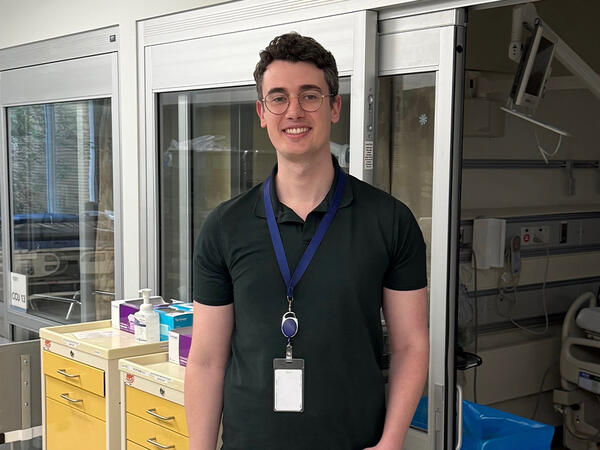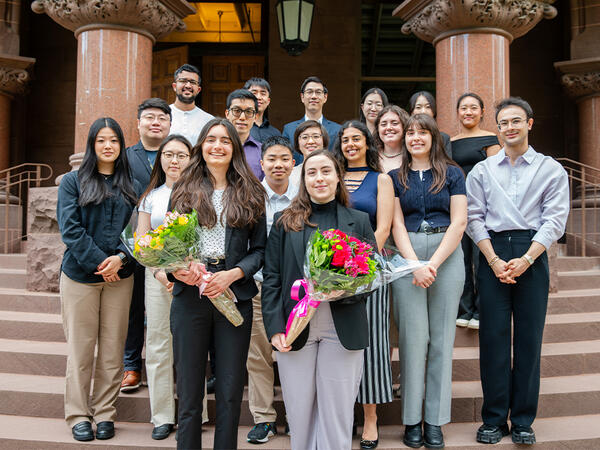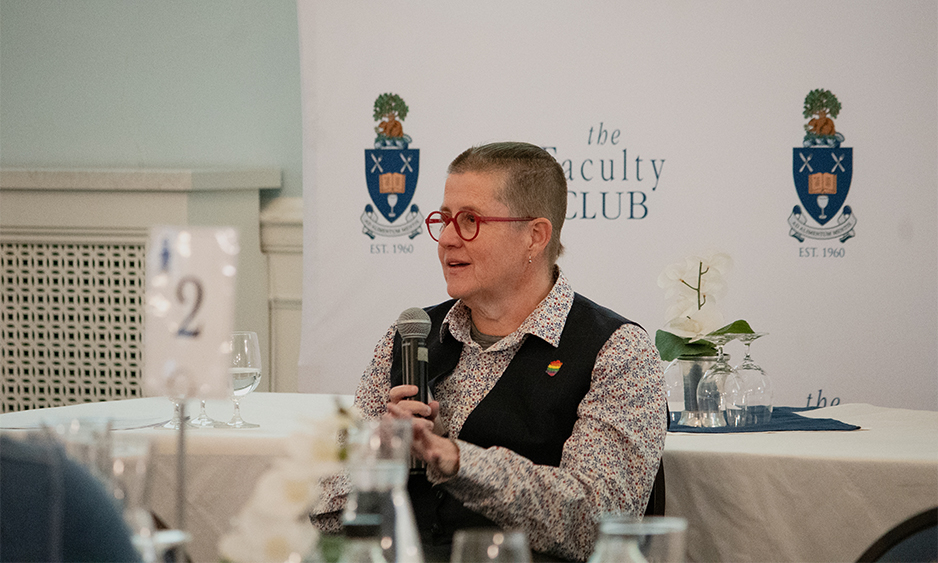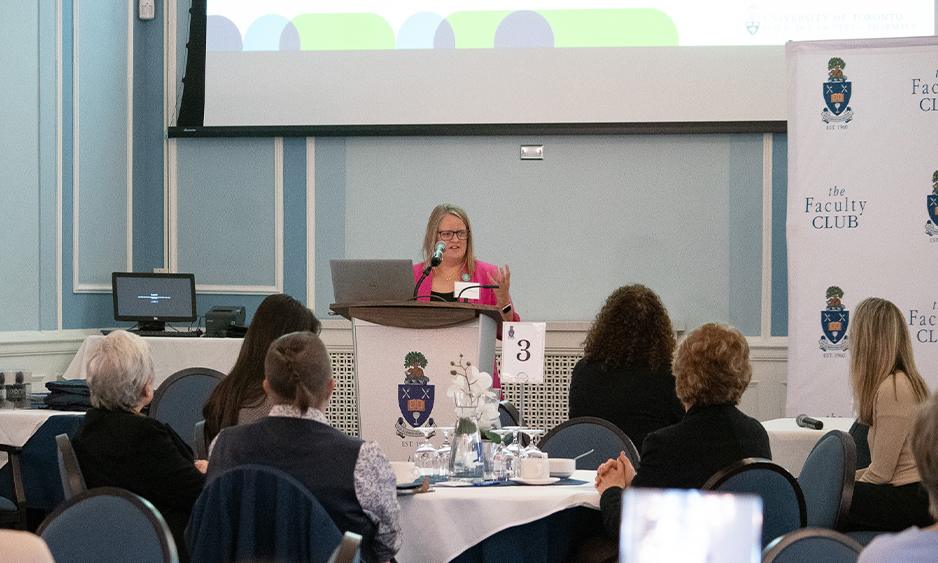Rajiv Rampersaud, Pharmacist and Medication Safety Specialist at ISMP Canada (center), with Certina Ho (left), assistant professor - teaching stream, sharing a poster of their findings in the NIDR National Snapshot and MSSA Data Spotlight from ISMP Canada.
Leaders in pharmacy research, practitioners, policymakers, clinicians and students came together for the 2024 OPEN Research Summit at the University of Toronto on October 9.
Hosted by the Ontario Pharmacy Ontario Pharmacy Evidence Network (OPEN), the event provided a platform for key discussions around the future of pharmacy, health workforce needs, and the intersection of research and policy in shaping effective healthcare delivery.
This year’s event featured pharmacy research experts and decision-makers from provinces across Canada and internationally who discussed key challenges and opportunities in developing policy-relevant research focused on supporting practice change. In addition to networking and interactive panel discussions, the annual OPEN Research Summit also welcomes and encourages research that is still in progress, providing investigators with the opportunity to gather feedback on their work and methodologies in real-time.
Insights from early research on pharmacy practice change
In the opening plenary session, Natalie Crown, associate professor, teaching stream, at U of T’s Leslie Dan Faculty of Pharmacy, shared early insights from phase one of a research study investigating Canadian pharmacists’ capacity to assume new roles and what is required to align with needs across the health care system.
The project's first phase is underway, with researchers interviewing community pharmacists from Ontario, British Columbia and Nova Scotia.
“Our work in this phase focuses on frontline pharmacists' perceptions of their readiness, willingness, and capacity to assume new roles in health care delivery,” said Crown who is also director of the Doctor of Pharmacy (PharmD) program at U of T. “By exploring the challenges and enablers of practice change, we can make evidence-based recommendations to support effective practice change and uptake of pharmacist services now and into the future.”
“By exploring the challenges and enablers of practice change, we can make evidence-based recommendations to support effective practice change and uptake of pharmacist services now and into the future.”
The research team includes pharmacy faculty members from the University of British Columbia and Dalhousie University, policy makers, and knowledge users from the pharmacy profession. The work is funded by a 2023 CIHR Catalyst Grant in Policy Research for Health System Transformation.
Showcasing student-led research
Pharmacist prescribing for minor ailments in Ontario has marked a significant shift in the scope of practice, creating opportunities for innovative approaches to boost pharmacy student education and training.
Supervised by Certina Ho, assistant professor at U of T’s Leslie Dan Faculty of Pharmacy, a team of U of T PharmD students have led research exploring how gamification can enhance knowledge retention and interaction.
“We were inspired to explore a gaming platform to support student education from listening to a colleague’s project presentation at the Life Long Learning in Pharmacy 2023 conference. In that project, the team found that gamification is a feasible and effective tool for reinforcing and refreshing knowledge in pharmacy education,” said Tina Zhou, a fourth-year PharmD student from U of T. “We led our project as a continuation of my previous needs assessment study to explore how gamification platforms could support students in prescribing for minor ailments.”
The research team was surprised that students who participated in the study spent more time engaged with the synchronous version of the game than the asynchronous mode. “It’s possible students may have chosen to complete the questions independently without external references, using the game as a tool to self-assess their knowledge,” said Iris Zhao, also a fourth-year PharmD student and project co-lead.
The OPEN Summit was an exciting opportunity for the team to share their findings and actively participate in knowledge exchange at the event. “It was an exceptional experience for pharmacy students to lead research, offering us the chance to contribute meaningfully to pharmacy education and develop leadership skills for future career opportunities,” said Iris Zhao.
“These initiatives provided us with the opportunity to advocate students' perspectives in curriculum design and explore innovative educational tools for knowledge development.”
More News
Image

Pharmacy alum’s research shows how full-scope practice improves cancer care
Honoured with a national award, Adrian de Boer says his residency experience was a powerful reminder that he's making a meaningful change to the pharmacy profession.
Read More
Image

Pharmacy alum passionate about helping community pharmacists practice to full scope
As a pharmacy leader at Rexall, Heidi Wittke uses frontline experience to lead initiatives that improve patient care
Read More
Image

Bridging Research and Industry: GRIP 2025 highlights innovation and real-world impact
Over 200 attendees from academia, healthcare, and industry gathered last week for the 2025 GRIP symposium, celebrating the depth and diversity of graduate student research.
Read More


